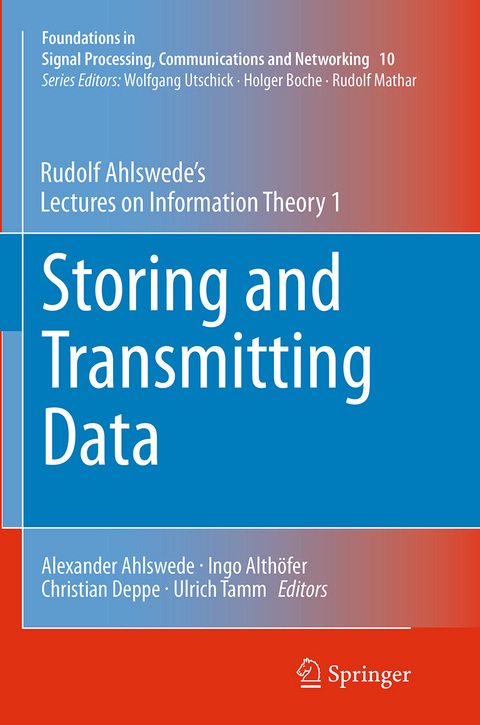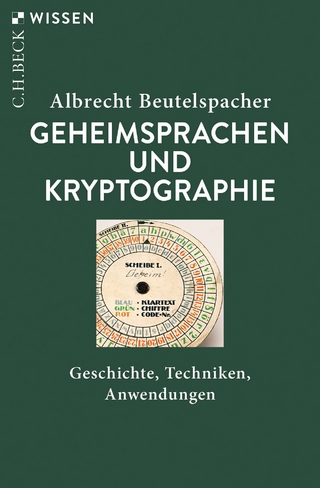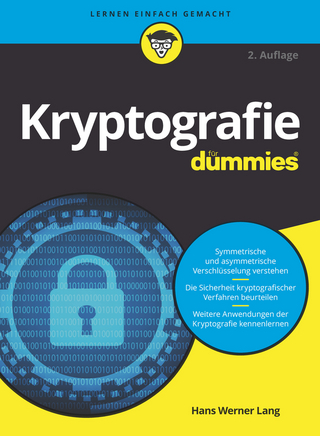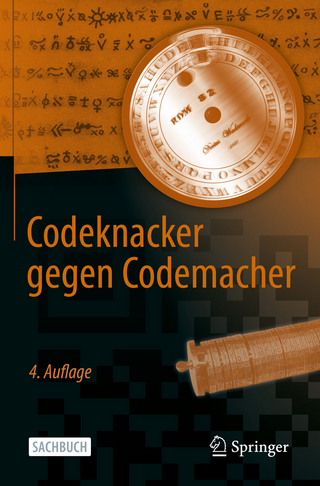
Storing and Transmitting Data
Springer International Publishing (Verlag)
978-3-319-35238-1 (ISBN)
The volume "Storing and Transmitting Data" is based on Rudolf Ahlswede's introductory course on "Information Theory I" and presents an introduction to Shannon Theory. Readers, familiar or unfamiliar with the technical intricacies of Information Theory, will benefit considerably from working through the book; especially Chapter VI with its lively comments and uncensored insider views from the world of science and research offers informative and revealing insights. This is the first of several volumes that will serve as a collected research documentation of Rudolf Ahlswede's lectures on information theory. Each volume includes comments from an invited well-known expert. Holger Boche contributed his insights in the supplement of the present volume.
Classical information processing concerns the main tasks of gaining knowledge, storage, transmitting and hiding data. The first task is the prime goal of Statistics. For the two next, Shannon presented an impressive mathematical theorycalled Information Theory, which he based on probabilistic models. The theory largely involves the concept of codes with small error probabilities in spite of noise in the transmission, which is modeled by channels. The lectures presented in this work are suitable for graduate students in Mathematics, and also in Theoretical Computer Science, Physics, and Electrical Engineering with background in basic Mathematics. The lectures can be used as the basis for courses or to supplement courses in many ways. Ph.D. students will also find research problems, often with conjectures, that offer potential subjects for a thesis. More advanced researchers may find the basis of entire research programs.
Rudolf Ahlswede (1938 - 2010) studied Mathematics in Göttingen, and held postdoc positions in Erlangen, Germany and Ohio, USA. From 1977 on he was full Professor of Applied Mathematics at the University of Bielefeld. His work represents an essential contribution to information theory and networking. He developed and contributed to a number of central areas, including network coding, and theory of identification, while also advancing the fields of combinatorics and number theory. These efforts culminated in his research program "Development of a General Theory of Information Transfer". In recognition of his work, Rudolf Ahlswede received several awards for "Best Paper", as well as the distinguished "Shannon Award".
Words and Introduction of the Editors.- Preface.- 1.Introduction.- Part I Storing Data: 2.Data Compression.- 3.The Entropy as a Measure of Uncertainty.- 4.Universal Coding.- Part II Transmitting Data: 5.Coding Theorems and Converses for the DMC.- 6.Towards Capacity Functions.- 7.Error Bounds.- Part III Appendix: 8.Inequalities.- Part IV Supplement: Rudolf Ahlswede 1938-2010.- Comments by Holger Boche.- Index.- Name Index.
| Erscheinungsdatum | 16.09.2016 |
|---|---|
| Reihe/Serie | Foundations in Signal Processing, Communications and Networking |
| Zusatzinfo | X, 302 p. 6 illus. |
| Verlagsort | Cham |
| Sprache | englisch |
| Maße | 155 x 235 mm |
| Themenwelt | Informatik ► Theorie / Studium ► Kryptologie |
| Mathematik / Informatik ► Mathematik ► Angewandte Mathematik | |
| Schlagworte | 94xx, 94Axx • Applied mathematics • Coding and information theory • Coding theory and cryptology • Data Compression • Engineering • entropy function • Information and Communication, Circuits • Information Theory • noiseless source coding • rate distortion • Rudolf Ahlswede • universal coding |
| ISBN-10 | 3-319-35238-5 / 3319352385 |
| ISBN-13 | 978-3-319-35238-1 / 9783319352381 |
| Zustand | Neuware |
| Haben Sie eine Frage zum Produkt? |
aus dem Bereich


